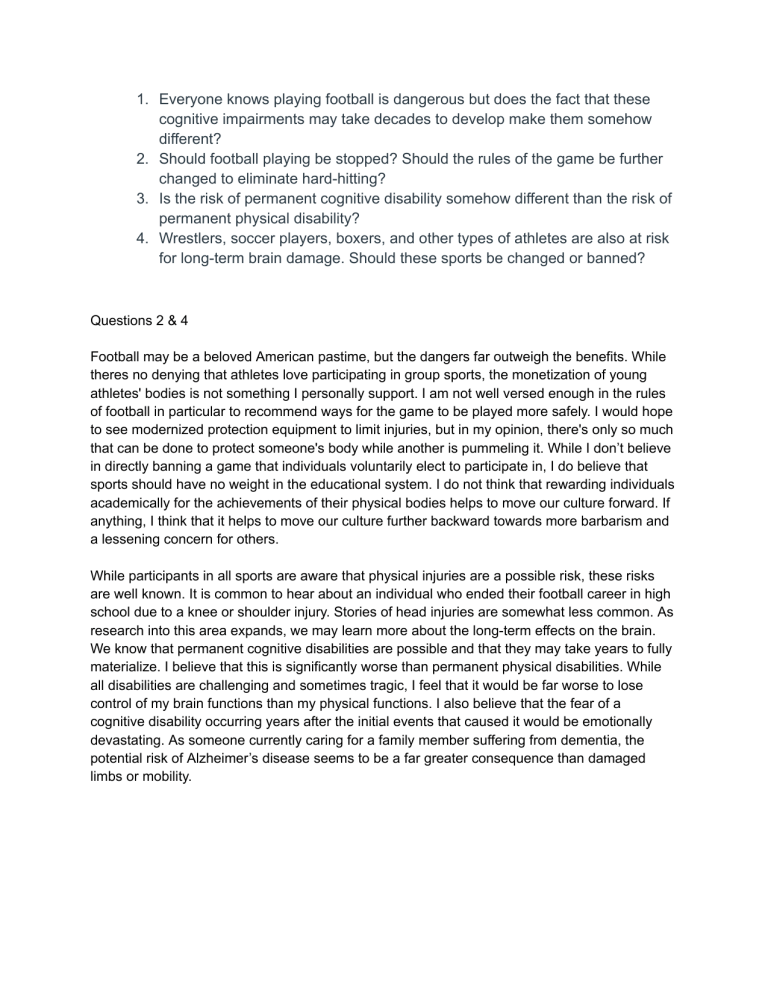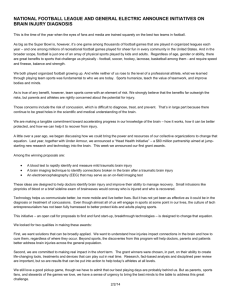Football, Brain Damage, and Sports Ethics: An Opinion Essay
advertisement

1. Everyone knows playing football is dangerous but does the fact that these cognitive impairments may take decades to develop make them somehow different? 2. Should football playing be stopped? Should the rules of the game be further changed to eliminate hard-hitting? 3. Is the risk of permanent cognitive disability somehow different than the risk of permanent physical disability? 4. Wrestlers, soccer players, boxers, and other types of athletes are also at risk for long-term brain damage. Should these sports be changed or banned? Questions 2 & 4 Football may be a beloved American pastime, but the dangers far outweigh the benefits. While theres no denying that athletes love participating in group sports, the monetization of young athletes' bodies is not something I personally support. I am not well versed enough in the rules of football in particular to recommend ways for the game to be played more safely. I would hope to see modernized protection equipment to limit injuries, but in my opinion, there's only so much that can be done to protect someone's body while another is pummeling it. While I don’t believe in directly banning a game that individuals voluntarily elect to participate in, I do believe that sports should have no weight in the educational system. I do not think that rewarding individuals academically for the achievements of their physical bodies helps to move our culture forward. If anything, I think that it helps to move our culture further backward towards more barbarism and a lessening concern for others. While participants in all sports are aware that physical injuries are a possible risk, these risks are well known. It is common to hear about an individual who ended their football career in high school due to a knee or shoulder injury. Stories of head injuries are somewhat less common. As research into this area expands, we may learn more about the long-term effects on the brain. We know that permanent cognitive disabilities are possible and that they may take years to fully materialize. I believe that this is significantly worse than permanent physical disabilities. While all disabilities are challenging and sometimes tragic, I feel that it would be far worse to lose control of my brain functions than my physical functions. I also believe that the fear of a cognitive disability occurring years after the initial events that caused it would be emotionally devastating. As someone currently caring for a family member suffering from dementia, the potential risk of Alzheimer’s disease seems to be a far greater consequence than damaged limbs or mobility.


